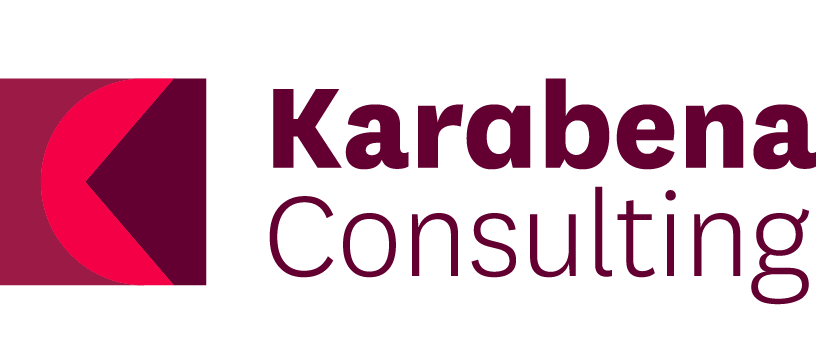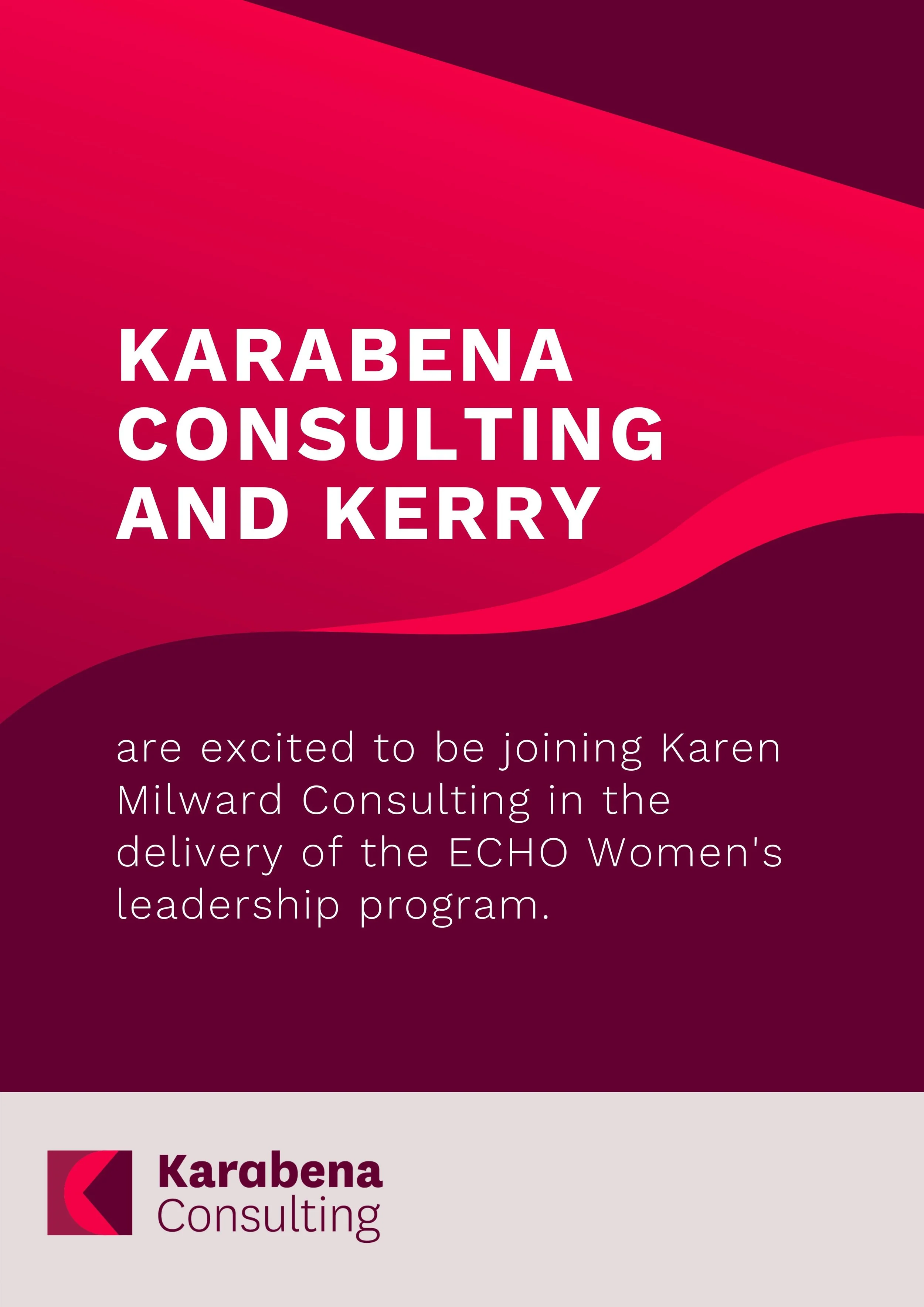With gratitude and mutual admiration, the partnership between Karabena Consulting and St Vincent's Hospital Melbourne (SVHM) draws to a close, leaving behind a trail of accomplishments and shared experiences.
Read MoreAs Indigenous Business Month has come to a close, it's time to reflect on the achievements and initiatives that have taken place at Karabena Consulting throughout this important month.
Read MoreIn the heart of the Torres Strait Islands, a sense of community, connection, and mutual support is deeply ingrained in our way of life. At Karabena, a proud 100 percent Torres Strait Islander woman-owned and operated company, these values are the bedrock of our work.
Read MoreAunty Janet Turpie - Johnston, a distinguished Aboriginal artist, scholar and Elder, offers an exploration of human connection to the land in her latest series of paintings at Mullum Mullum Blak Arts Exhibition and allowed us to video her providing EMPHN Community Forum participants an explanation of her works.
Read MoreWe at Karabena Consulting are proud to announce a significant partnership that marks a new chapter in our continuous journey towards empowering Aboriginal communities. Collaborating with the Department of Health, we have embarked on a project named "Aboriginal Led Design and Participation - Shaping a Holistic Early Years Health Service for Aboriginal Communities from Pregnancy to Starting Schools.”
Read MoreAs an Indigenous woman-owned and led consulting company based in Melbourne, Australia, our mission at Karabena Consulting is deeply rooted in improving the health and wellbeing of Aboriginal and Torres Strait Islander people. Recently, we had the incredible opportunity to work on a project funded by the Centre for Evaluation and Research Evidence (CERE). We were tasked with evaluating the Family Preservation and Reunification Response Phase 2 program, a vital initiative aimed at supporting vulnerable families and children. Today, we are thrilled to share the successes and insights we gained during this transformative evaluation.
Read MoreAs we settle into our new home in Sunbury, we're continually inspired by the cultural and natural heritage that surrounds us. One such symbol of inspiration is the Earth Rings of Sunbury. These ancient earthworks, believed to have been used for ceremonial purposes by the Wurundjeri people, embody many of the values we hold dear at Karabena.
Read MoreIn a powerful collaboration, Karabena Consulting, a 100% Indigenous-owned company in Australia, partnered with the City of Melbourne to embark on a momentous project - the Stolen Generations Marker. This significant initiative aimed to recognize truth-telling, share Aboriginal culture, and acknowledge the experiences of dispossession, fostering healing and reconciliation within Melbourne and beyond.
Read MoreAt Karabena we are proud to be part of the Four-Day work week trial. We acknowledge the often-overlooked contributions and struggles of Indigenous workers throughout history, seeking to create a more equitable future for all.
Read MoreThe Commonwealth Games presented a unique opportunity to facilitate a change in the relationship between the Commonwealth and First Nations people. The intangible benefits could have included pride, access, reduced racism in regional Victoria, increased business opportunities with the increased visitor economy and promoting culture to Australia and the world.
Read MoreBig news from the Karabena family - we are on the move! Our team is embarking on a new journey, transitioning to our brand-new office in the charming town of Sunbury. This move symbolizes an exciting new chapter in our story, one filled with anticipation and a fresh sense of purpose.
Read MoreWe are thrilled to announce that Karabena Consulting has emerged as the successful tenderer for the evaluation of the first Dhelk Dja 3-Year Action Plan (2019-2022). Our rich history and expertise as an Aboriginal service provider make us an ideal partner to evaluate this significant initiative by the Department of Families, Fairness, and Housing (DFFH).
Read MoreWhen it comes to professional development, Mental Health First Aid training may not seem like the most obvious choice for businesses seeking a significant return on investment. However, Lauren learned that the impact of mental ill-health on workplace productivity and performance is enormous.
Read MoreRecently, David made the difficult decision to leave the comfort of his role as secondary teacher and join the team at Karabena Consulting. As a descendant of the Awabakal people, this was an important choice both on a personal and professional level. He has long felt an innate yearning to directly contribute to First Nations programs and initiatives, and feels very fortunate for the opportunity provided by Kerry and the team.
Read MoreWe, much like many other forward-thinking organisations, have started allocating budgets specifically for professional development, empowering our employees to enhance their skills and knowledge. One shining example of this investment is Kate, our Executive Manager of Digital and Marketing, who recently embarked on a transformative learning journey by enrolling in a Mini MBA in Marketing with Marketing Week.
Read MoreSet for face-to-face delivery in November at Creswick, Victoria, the ECHO participants were selected to join the growing number of ECHO Alumni. The training course is a result of intensive co-design and delivery with our women.
Read MoreAs we come to the end of the 16 Days of Activism against Gender-Based Violence, we have been reflecting on Aboriginal and Torres Strait Islander people’s experiences of violence, and how innovative prevention strategies can be implemented to address the family violence experienced by First Nations families.
Read MoreWhat did I mean by cultural leave?
Last week, I was asked an intriguing question by my staff, ‘What does Karabena Consulting mean by cultural leave?’ Like many other businesses and workplaces, we have an in-house policy which enables us to provide cultural leave every year.
Last month the Australian Government announced that it is providing $16.6 million for perinatal mental health initiatives, through nine new grants. We were particularly thrilled to hear that $2.59 million was awarded to the University of Newcastle’s SMS4dads – a digital information and support service for new fathers.
Read MoreNothing gets me going in the morning more than a good cuppa tea and a Manifesto to read. Some people like to read the news, talk to their partners, pat their dogs, go for a walk, do Pilates or chant, but I like to think. Manifestos can help me do just that because they describe the intentions and motivations of the individuals who write them.
Read More



















